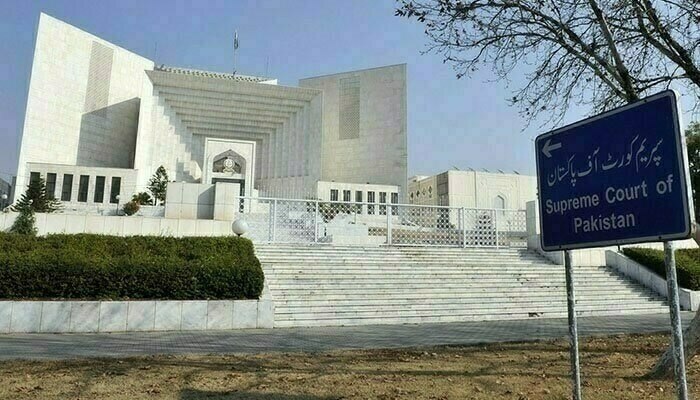ISLAMABAD: The Supreme Court said phenomenon of accused persons’ parading in front of cameras or reporters aggressively questioning the accused in criminal cases while they are in police custody for investigate must end.
A three-judge, headed by Justice Athar Minallah and comprising Justice Irfan Saadat Khan and Justice Malik Shahzad Ahmad Khan decided that in a murder case, acquitting the appellant (Shahid Ali), who was convicted under Section 302(b) of the PPC and sentenced to death by the trial court, and upheld by the High Court.
The crime, in this case, relates to the gruesome murder of Wasim Akram, who was around 7 or 8 years old when his lifeless body was discovered lying in a water tank and was recovered by police officials.
According to the case, the appellant was convicted on the basis of an interview recorded by a journalist Afzal Pervaiz (PW-9) while he was on physical remand and in the custody of the investigating officer. “The appellant’s interview was later aired on one of the private television channels ARY NEWS, in its program “Jurm Bolta Hae””.
The trial court as well as the High Court had heavily relied upon this statement by treating it as a confession of guilt made by the appellant.
The judgment authored by Justice Athar Minallah noted that it is not unusual for the electronic media to show accused persons parading in front of the cameras or reporters aggressively questioning the accused in criminal cases while they are in custody during the course of investigation. This phenomenon is deprecated because it gravely violates and undermines the rights of the parties, particularly the accused and gravely interferes with the fairness of a trial.
It is an obligation of each government, federal and provincial, to take immediate effective measures in ensuring that this phenomenon comes to an end. The respective governments are responsible to safeguard the rights of the parties in criminal proceedings, particularly an accused, and the fairness of the process of investigation.
Giving access to persons not associated with the process of investigation and facilitating them to interfere, directly or indirectly, with the criminal proceedings violates the law and gravely affects the fairness of the trial and the rights of an accused. It is a misconduct in the case of an investigator or a person in authority, such as the In charge of a Police Station, to give access to or facilitate any person to interfere with the course of investigation in violation of the procedure prescribed under the CrPC, read with the enabling provisions of other statutes.
The media, whether print or electronic, directed to self regulate its reporting and airing of programmes by setting out and adopting standard operating procedures, having regard to the international best practices.
The Court expected from the regulatory authorities to consider proposing such standard operating procedures in consultation with the stakeholders with the object of safeguarding the rights of the parties, particularly during an investigation.
The judgment said that the power and authority of a magistrate under Section 164 of the CrPC can also not be usurped and made redundant, directly or indirectly, by giving access to private persons to record confessions. Access and permission, therefore, cannot be given to a private person, such as a person engaged in the profession of journalism, to record the statement of an accused in the nature of a confession while he or she is in custody. Any such statement would be inadmissible under the mandate of Article 39 of the Qanun-e-Shahdat Order, 1984.
Copyright Business Recorder, 2025
